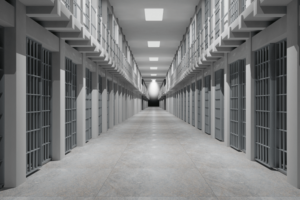
The terms “jail” and “prison” are often used interchangeably, but they refer to different facilities within the criminal justice system, each serving distinct purposes. Understanding the differences between jails and prisons is crucial to grasp their roles in the legal system.
Jails
Jails are typically run by local law enforcement agencies or county governments. They serve as short-term holding facilities for individuals awaiting trial, sentencing, or court appearances. Jails also accommodate individuals convicted of minor offenses, usually those with sentences of a year or less.
Key characteristics of jails include:
1. Short-term detention: Jails house individuals for shorter durations, often while their cases are being processed or until they post bail.
2.Diverse population: They house various types of individuals, from those arrested for minor offenses to those awaiting trial for more serious crimes.
3. Local jurisdiction: Jails are administered at the local level, serving specific counties or municipalities.
Prisons
Prisons are long-term correctional facilities designed for individuals convicted of more serious crimes. They are operated by state or federal governments and have a higher level of security compared to jails. Prisons incarcerate individuals for longer periods, typically for felony convictions with sentences of more than a year.
Key characteristics of prisons include
1. Long-term confinement: Prisons house individuals for extended periods, often following conviction and sentencing for serious crimes.
2. Security levels: They have various security levels, from minimum to maximum security, based on the nature of the inmates and the facility’s design.
3. State or federal jurisdiction: Prisons fall under the authority of state or federal governments, serving individuals convicted of crimes at those respective levels.
Distinguishing Features
Duration of Stay: Jails cater to short-term stays, whereas prisons accommodate individuals for longer sentences.
Jurisdiction: Jails are locally operated, serving specific communities, while prisons are under state or federal control, housing individuals convicted of more serious offenses.
Purpose: Jails mainly function as pre-trial detention facilities and house individuals awaiting trial or sentencing. In contrast, prisons are designed for rehabilitation, punishment, and long-term confinement for convicted individuals.
Understanding these distinctions is crucial in comprehending how the criminal justice system manages individuals at different stages of the legal process and for varying degrees of offenses. Both jails and prisons play pivotal roles in maintaining public safety and administering justice within the broader legal framework.
 GhArticles.com Every News in Detail
GhArticles.com Every News in Detail



